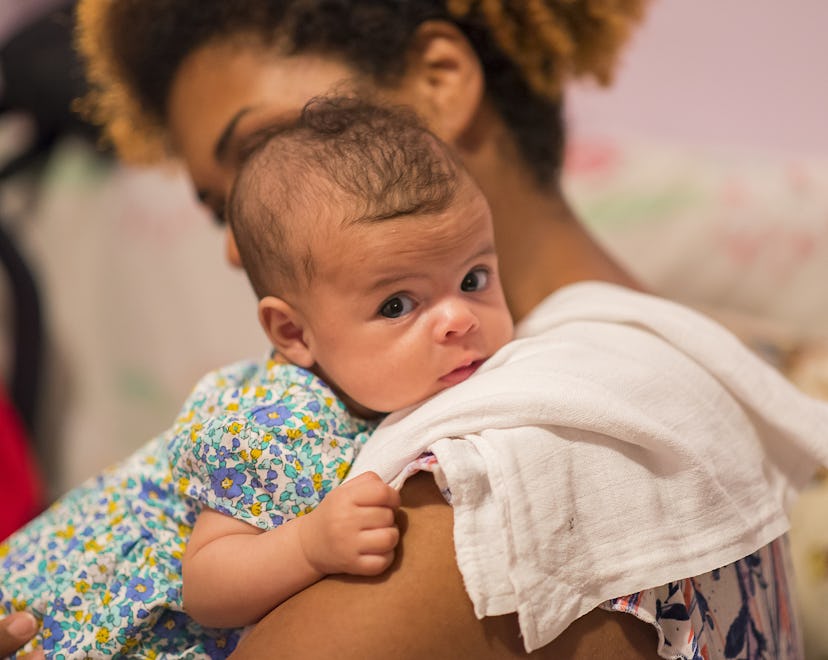Baby

Can You Burp A Baby Too Hard? A Pediatrician Shares Tips For Gassy Tummies
Here’s how to do it right.
After enjoying a good meal a little too quickly or drinking a soda, most people get that awkward bubble feeling in their chest or throat, and it can be super uncomfortable. Most adults know how to relieve this pressure on their own by producing a big burp. Newborn babies on the other hand, need a little help if they’ve got a gas bubble causing discomfort after a feeding session. Most of what we’ve seen in movies and on TV are parents patting the child’s back repeatedly until that release of gas occurs. But what if it’s just not coming out? Should you burp them with a bit more force than your gentle pats offer? Can you burp a baby too hard? There has to be one best way to burp your baby, pain-free, and give them some relief.
Can you burp a baby too hard?
Even though babies are way more resilient than we sometimes give them credit for, you can potentially burp them too hard. “It is recommended that you gently burp your baby, there should certainly be no residual redness in the area you are patting,” says Dr. Eboni Hollier, who is board-certified in both developmental and behavioral pediatrics. Here are the signs to watch for that indicate you may be patting your baby too hard while you burp them, according to Hollier:
- Baby acts generally uncomfortable and fidgeting while you burp them
- If they’re crying while you’re patting or burping them
- If they stop crying or fussing when you stop patting his or her back
What is best way to burp a baby?
“Most people gently pat and rub baby's back when burping,” explains Hollier. Positioning is a big piece of the burping puzzle, too. Keep baby upright to make them more comfortable as they work on getting that gas bubble out of their system. “Common positions for burping baby include sitting him or her on your lap, and leaning your baby slightly forward onto one hand, holding them while facing you over one shoulder, or laying baby with tummy down on your lap while softly patting and rubbing his or her back with the other hand.” It’s important to still support your baby’s head and back while burping them.
How long should you burp your baby?
How long should you try to burp your baby if they just aren’t burping, especially to make sure you don’t do it too long and potentially burp them too hard? It’s reasonable to try actively, gently burping Baby for five full minutes before stopping, Hollier says. However, “If your baby seems uncomfortable, it is OK to continue attempting to burp, but if your baby seems comfortable and happy, it's OK to stop.” Remember, most young babies need to be burped to help release air they’ve swallowed until they’re about 6 months old and can sit up independently. The swallowed air will cause discomfort, and “this discomfort may be evident due to baby’s fussiness or squirming. It is typically recommended to burp babies during and after feedings when infants are young, whether they burp each time or even if they do so infrequently,” Hollier explains.
While burping your baby, just be sure to take cues from his or her response to your patting. Does your baby look uncomfortable or begin to cry? That’s probably a sign you’re patting a little too hard. Never leave a red mark, and try for five minutes before giving up if they seem to be comfortable. Remember, in some countries, a big belch indicates they enjoyed the meal and appreciate the cook — your baby is just showing you some gratitude.
Expert:
Dr. Eboni Hollier, a board-certified pediatrician.
This article was originally published on